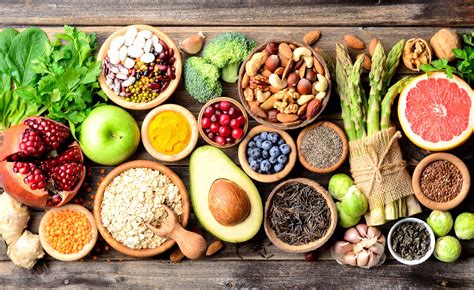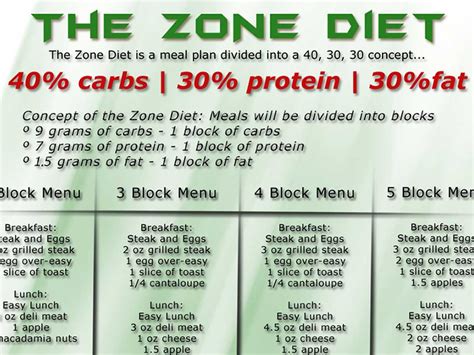Discover the benefits and drawbacks of a low-fat diet, understand its effects on health, and get tips for implementation in this informative blog post.
What is Low-Fat Diet?
Contents
A low-fat diet is a eating plan that focuses on reducing the intake of high-fat foods, especially those containing unhealthy saturated and trans fats. In this type of diet, the goal is to consume more of the healthier fats, such as monounsaturated and polyunsaturated fats, while minimizing the intake of saturated and trans fats, which are known to increase the risk of heart disease and other health issues.
By following a low-fat diet, individuals aim to lower their overall calorie consumption while still obtaining essential nutrients. This diet often involves incorporating more fruits, vegetables, whole grains, lean proteins, and low-fat dairy products into the daily meals, while avoiding or limiting high-fat and processed foods.
Typically, a low-fat diet focuses on consuming no more than 30% of calories from fat, with an emphasis on choosing healthier, unsaturated fats found in foods such as avocados, nuts, and certain oils. In addition, the diet plan encourages mindful eating and paying attention to portion sizes to further decrease fat and calorie intake.
Overall, the primary goal of a low-fat diet is to improve overall health by reducing the risk of chronic conditions such as obesity, heart disease, and diabetes, while promoting a balanced and nutrient-rich approach to eating.
Understanding Dietary Fat and its Effects
Understanding Dietary Fat and its Effects
When it comes to nutrition, dietary fat is an essential component of a healthy diet. However, not all fats are created equal. Understanding the different types of dietary fats, and their effects on our health, is crucial in making informed dietary choices.
First and foremost, it’s important to differentiate between saturated and unsaturated fats. Saturated fats, found in animal products and some plant oils, have been linked to an increased risk of heart disease and stroke when consumed in excess. On the other hand, unsaturated fats, which include monounsaturated and polyunsaturated fats, can have beneficial effects on our health when consumed in moderation.
In addition to the type of fat, the overall amount of fat in our diet can also have significant effects on our health. High-fat diets have been associated with an increased risk of obesity and chronic diseases such as diabetes and heart disease. On the other hand, a moderate intake of healthy fats can actually have positive effects on our health, such as improving cholesterol levels and reducing the risk of heart disease.
It’s also worth noting that not all sources of dietary fat are created equal. For example, fats from plant-based sources such as nuts, seeds, and avocados contain healthy unsaturated fats, while fats from processed and fast foods are often high in unhealthy saturated and trans fats. Therefore, it’s important to focus on consuming whole, nutritious foods rather than relying on processed and fast food for our fat intake.
Overall, understanding the role of dietary fat in our health, as well as the different types of fats and their sources, is essential in making informed dietary choices that can positively impact our overall well-being.
Health Benefits of Low-Fat Diet
A low-fat diet can offer several health benefits when followed correctly. One of the key advantages is the potential for weight loss. By reducing the intake of dietary fat, particularly unhealthy saturated and trans fats, individuals can lower their overall caloric intake and promote a healthier body weight. This can help reduce the risk of obesity-related conditions such as type 2 diabetes, heart disease, and certain cancers.
Additionally, consuming a low-fat diet can also have a positive impact on cholesterol levels and heart health. By limiting the consumption of saturated fats, individuals can lower their LDL (bad) cholesterol levels, which can decrease the risk of developing cardiovascular diseases. Incorporating more healthy fats such as omega-3 fatty acids from sources like fish, nuts, and seeds can further improve heart health and overall well-being.
Furthermore, a low-fat diet can be beneficial for individuals with certain digestive conditions. For example, those with gallbladder disease or pancreatitis may benefit from consuming lower amounts of fat to minimize symptoms and improve digestive function. By focusing on lean protein sources, fruits, vegetables, and whole grains, individuals can still obtain the necessary nutrients while reducing the likelihood of discomfort and complications related to these health conditions.
Finally, following a low-fat diet can help individuals develop healthy eating habits and make more mindful food choices. By prioritizing whole, nutrient-dense foods and avoiding highly processed, high-fat options, individuals can establish a balanced approach to nutrition that supports long-term health and well-being.
Potential Drawbacks of Low-Fat Diet
While low-fat diets have gained popularity for their potential health benefits, it is important to consider the potential drawbacks associated with this type of diet. One of the primary concerns with a low-fat diet is the potential for nutrient deficiencies. Since fat is a carrier for fat-soluble vitamins such as A, D, E, and K, reducing fat intake can lead to inadequate intake of these essential nutrients. This can have implications for overall health and well-being, as these vitamins play crucial roles in various bodily functions.
Additionally, some individuals may struggle to maintain a low-fat diet because it can lead to increased hunger and cravings. Fats are a key macronutrient that help to promote satiety, meaning they can help keep you feeling fuller for longer periods of time. Without an adequate intake of fats, individuals may experience more frequent hunger pangs and cravings for high-calorie, high-fat foods, which can potentially lead to overeating and weight gain.
Furthermore, some research suggests that low-fat diets may not be as effective for weight loss and overall health as previously believed. In fact, certain studies have shown that low-fat diets may not lead to significant long-term weight loss compared to other dietary approaches. This can be discouraging for individuals who are following a low-fat diet with the goal of improving their overall health and body composition.
Finally, it is important to consider the potential impact of consuming low-fat processed foods, which are often marketed as being healthy choices. Many of these products undergo significant processing and may contain added sugars, artificial ingredients, and other unhealthy additives to enhance flavor and texture. This can lead to increased consumption of refined carbohydrates and added sugars, both of which have been linked to a variety of health issues when consumed in excess.
Tips for Implementing a Low-Fat Diet
Starting a low-fat diet can be challenging, but with the right tips, it can become a sustainable and enjoyable lifestyle. Planning your meals ahead of time is crucial for success. This will help you avoid the temptation of high-fat convenience foods. Focus on incorporating a variety of nutrient-dense foods such as fruits, vegetables, whole grains, and lean protein sources into your diet. Additionally, reading food labels can help you make informed choices about the fat content of the products you buy.
Another important tip is to cook your own meals whenever possible. This gives you full control over the ingredients and the amount of fat used in the cooking process. Experiment with different cooking methods such as grilling, steaming, and baking to reduce the amount of added fats. It’s also helpful to limit your intake of processed foods, as they often contain hidden fats and unhealthy additives.
Incorporating healthy fats such as avocados, nuts, and olive oil in moderate amounts is also recommended. While the focus is on reducing overall fat intake, it’s important to remember that not all fats are bad for you. These healthy fats can be beneficial for heart health and provide essential nutrients.
Additionally, staying hydrated is key to success on a low-fat diet. Sometimes our bodies mistake thirst for hunger, leading us to overeat. Drinking enough water throughout the day can help you feel full and curb cravings. Lastly, finding support from friends, family, or online communities can provide encouragement and motivation as you transition to a low-fat diet.













